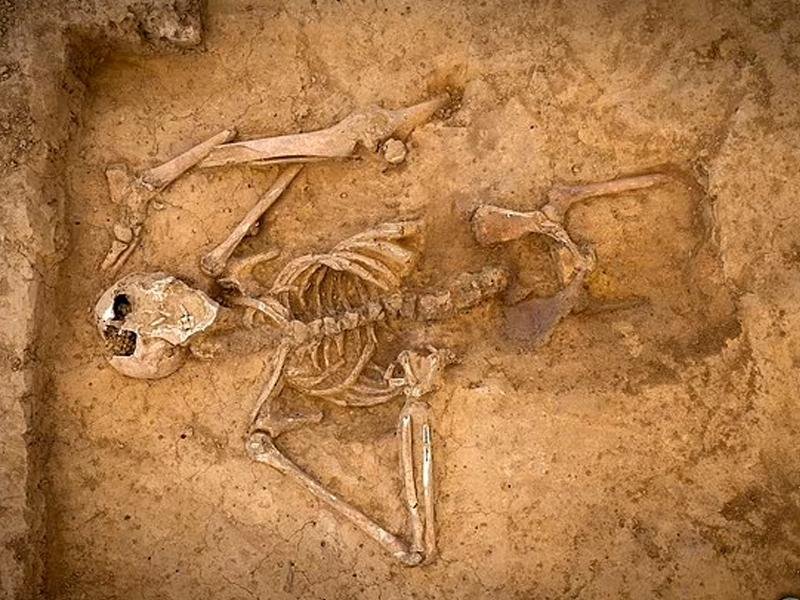A human skeleton, amputated limbs, and the bones of at least three horses were discovered during an archaeological dig.
 The articulated skeleton, from above. Credit: Waterloo Uncovered
The articulated skeleton, from above. Credit: Waterloo Uncovered
The discovery was made at Mont-Saint-Jean farm, which was the main allied field hospital during the battle in which the Duke of Wellington and his international army finally put a stop to Napoleon’s European rampage on June 18th, 1815.
Archaeologist Professor Tony Pollard, who is also the director of Glasgow University’s Centre for Battlefield Archaeology, is leading the team that is digging up the remains. However, the remains have not been fully dug up yet, so it is too early to know the person’s nationality, age, or cause of death.
Although the skeleton is smaller than that of a typical man today, scientists believe it is male and one of the over 20,000 soldiers who died in the battle that reshaped the map of Europe and was described by Wellington as a “damn close-run thing.”
It was one of the bloodiest battles in history, crushing Napoleon’s hopes of establishing a great empire. Thousands of soldiers were also injured.
“I’ve been a battlefield archaeologist for 20 years and I have never seen anything like it. This is the closest we’ll ever get to the harsh reality of Waterloo. We have what looks like a complete human skeleton adjacent to another amputated leg. We don’t know whether that person was killed in a battle and the body was brought here… or whether he or she died in the hospital. This sort of very old deposit is extremely rare on Napoleonic battlefields.” Prof. Tony Pollard said.
The excavation project, which includes archaeologists, students, military personnel, and veterans, began in 2015 to mark the battle’s bicentennial. They discovered the remains of three amputated legs at the site in 2019. The excavation was then interrupted because of the coronavirus pandemic.
According to Eva Collignon, a Belgian archaeologist, the latest bones unearthed were probably gathered “in a hurry” in a ditch near the field hospital due to the number of deaths.
Source: Waterloo Uncovered





